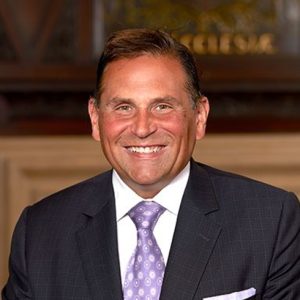What exactly happens behind closed doors of a prestigious hospital? Are patients receiving the best care possible, or are they suffering more due to careless mistakes that could be avoided?
At Sacred Heart Hospital in Chicago, the lowest-rated hospital in the nation, inspection reports depicted details of a fatal incident mentioning rusty surgical tools, walls with gaping holes, nurses who carelessly neglected to take the necessary safeguards to prevent falls and bedores, and a “lab refrigerator so dirty” that would lead anyone to believe that contamination was just around the corner. This incident is just one of many, and something that medical experts and the public are outraged about. Hospitals need to be more aware of the complications and the risks that lack of safety measures can cause.
Thus, medical experts have comprised a list of eight things that should never happen at a hospital:
Bedsores
We start with bedsores. Patients should know that frequent repositioning and special cushions is a must or else painful wounds will develop. If you see patches of skin that have reddened, you should definitely let the nursing staff know.
Collapsed Lung
Secondly, a collapsed lung should never occur if the doctors are careful and use an ultrasound as a guide. If careless, they could puncture the lungs when inserting a catheter into the chest causing major problems.
Bloodstream Infections
As common sense as the third might seem, doctors and nurses should make sure that tubes used to deliver medicine are kept clean because of the risk of bloodstream infections.
Post-op Hip Fractures
Our fourth is postoperative hip fractures. Don’t assume that you won’t be groggy from the medication at hospitals and always ask for assistance if you try to get out of bed. By simply trying to get up without assistance, many patients can break their hip leading to many more complications.
Post-Surgery Blood Clots
The fifth thing that should never happen at hospitals are blood clots after surgery. Moving about and walking soon after surgery can help prevent these clots, which are extremely dangerous if they break loose and travel to the lungs, leading to deadly complications such as pulmonary embolism.
Post-op Sepsis
Another “no-brainer” would be to make sure that everyone around you has washed their hands and the hospital staff has followed the infection prevention guidelines. This leads us to our number six – postoperative sepsis. If it occurs, it can cause a serious infection that overwhelms the body leading to failure of many organs. Usually, patients in hospitals have low immune systems, so infection is more likely to run rapid.
Open Wounds After Surgery
Another way that infection can occur is by opening up a wound after surgery. This is our seventh thing that should never happen at a hospital because it is extremely dangerous. Always ask about how to care for your surgical wound, how long it should take to heal, and what happens if it doesn’t heal.
Accidental Punctures or Cuts
Finally, the last thing that should never happen at a hospital would be accidental punctures or cuts. Although many surgeons and doctors are extremely careful, they could accidently puncture a blood vessel or organ. Everyone would agree that this is not an ideal situation, so make sure that you find a skilled surgeon to reduce the risk for more complications.
Now that we just went through the eight things that should never happen in hospitals, you know of the high risks and complications that can occur if the hospital staff aren’t careful. Although many hospitals around the nation are taking initiative and acknowledging the fact that they need to improve in some areas, there needs to be a global commitment. A promise of high quality health care without the added worry of more complications that could be prevented by simply being safe.

Edward A. Ruffo, Partner
Mr. Ruffo currently litigates cases at the state and federal levels in New York and New Jersey and has obtained numerous multi-million dollar medical damage awards for his clients. He has been annually ranked as a Top 10 and Top 100 Trial Lawyer by numerous professional societies including The National Trial Lawyers Association.

